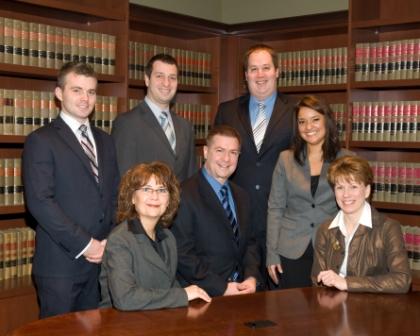There is a legal adage that every first year law student has likely heard, if not recited numerous times: “the man who represents himself has a fool for a client.” While there are certainly instances of untrained intelligent people winning cases in a court of law, the saying might never be truer than for business owners in Wisconsin. This is because in many instances, the failure to hire an attorney might not only be unwise, but also give the opposing party the easy route to an automatic win.
One popular business form boasts well established rules. Wisconsin corporations are bound by statute to be represented in court (excluding small claims cases) by an attorney. This provision can be especially relevant for business owners choosing the S-corp form of business. While many attorneys advise their clients on the tax benefits of pass-through taxation for an S-corp, relatively few address the ramifications with their new business owner clients.While nearly every entrepreneur gets into business with the intention of running an honest, respectable business that is beyond legal reproach, lawsuits are inevitable. Whether it be a customer who can not be satisfied, a vendor who overcharges, or simply someone not paying a bill, if any controversy exceeding $5,000 (with few exceptions) ends up in court, the corporation may be in a precarious position. Many business owners, whether for economic reasons, or the belief that they are equipped to handle the opposing party in court, choose to represent themselves. The effects can be far reaching. As a practical matter, this means the owner is in violation of the Wisconsin statute and the judge may not be forgiving.
When a Complaint is filed in any lawsuit, an Answer needs to be filed shortly thereafter. Failure to do so can result in the court granting the party filing the lawsuit a default judgment, which in effect, means the non-answering party admits all of the allegations in the lawsuit, and the plaintiff is usually granted whatever relief they sought. When a business is a party to the lawsuit, many owners believe they may appear in court and file an Answer on behalf of the company they own. In many cases, owners file their Answer within the statutory period for doing so. However, savvy Plaintiff’s lawyers are increasingly recognizing the lack of an attorney’s signature on the Answer. Wisconsin cases have recognized that the statute requires an attorney to represent the corporation, and the Answer, unsigned by a licensed practitioner of the law, is not legally recognized. The Plaintiff is able to ask the court for a default judgment as if no action had been taken by the Defendant at all, and they had simply let the time period for answering lapse.
Once the default judgment has been granted, even the subsequent hiring of an attorney might not be enough to get a fair hearing in court. The attorney must move to reopen the case, and judges are not always inclined to allow a reopening, even for parties with compelling cases that may have attempted to make an answer previously. Upon receiving a judgment, the Plaintiff can establish a lien against the assets of the corporation.
While the rules for the corporation are well defined, the rules for an entity operating as a Limited Liability Company or “LLC” are less absolute. The statutes do not specifically mention an LLC as an entity that requires representation by an attorney in lawsuits, and to date, there is no case clearly defining whether the LLC falls within the scope of the statute. However, there are good reasons to believe the requirement of legal representation extends to this type of entity. The LLC, in most legal respects, is treated like a corporation. Members, like shareholders of a corporation, enjoy legal protections from liabilities of the company. While there are differences between the types of business entity, this seems the most compelling and important one when considering the LLC. If the LLC is treated like the corporation, and indeed, in lower courts it has happened on numerous occasions, the LLC may also face the possibility of having default judgment entered against it, even in cases where a member or owner has filed an otherwise appropriate Answer.
A new business owner has many choices when deciding upon the type of entity for its operations. Do not let your company incur debt by failing to follow the statutory requirements of legal representation.
Subscribe to:
Post Comments (Atom)

Being business owners ourselves, we understand the issues that many small to mid-sized businesses face on a daily basis. As your business lawyer boston, our goal is to become a valued and active partner in your business.
ReplyDelete